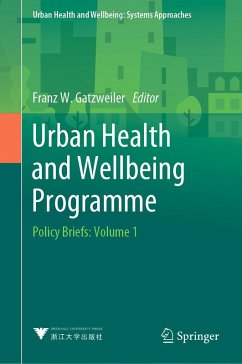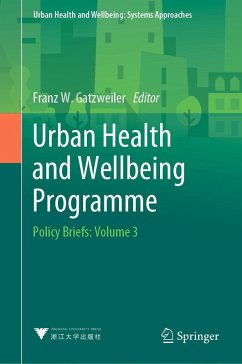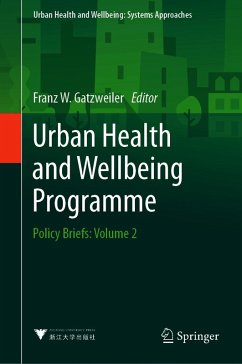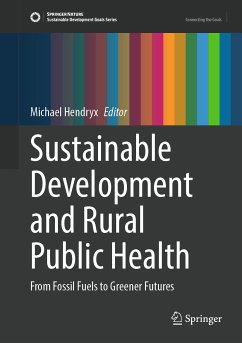
Broken Pumps and Promises (eBook, PDF)
Incentivizing Impact in Environmental Health
Redaktion: Thomas, Evan A.
Versandkostenfrei!
Sofort per Download lieferbar
40,95 €
inkl. MwSt.
Weitere Ausgaben:

PAYBACK Punkte
20 °P sammeln!
This volume highlights some of the challenges in delivering effective environmental health interventions, and presents examples of emergent theories and case studies that can help close the gap between intent and impact. These include impact crediting systems, objective evidence gathering tools, and social businesses that service environmental health. The case studies presented cross disciplines, scales, organizational and national boundaries and can defy easy categorization. A water project may be designed for a health impact, but financed with a climate change tool, and leverage high tech ce...
This volume highlights some of the challenges in delivering effective environmental health interventions, and presents examples of emergent theories and case studies that can help close the gap between intent and impact. These include impact crediting systems, objective evidence gathering tools, and social businesses that service environmental health. The case studies presented cross disciplines, scales, organizational and national boundaries and can defy easy categorization. A water project may be designed for a health impact, but financed with a climate change tool, and leverage high tech cell phone sensors. A cookstove program may be primarily concerned with employment and capacity building, but balance environmental and health concerns.
Presently, the impact of interventions may not always be aligned to the intent sought. In this book, readers will discover alternative ways to move the mindset of funders and implementers toward pay-for-performance models of humanitarianand environmental interventions. Undergraduate and graduate students taking courses in social enterprise, social entrepreneurship, global health, appropriate technology, international development and development engineering would benefit from these increasingly non-traditional case studies that challenge commonly accepted presentations of poverty reduction and social enterprise.
Presently, the impact of interventions may not always be aligned to the intent sought. In this book, readers will discover alternative ways to move the mindset of funders and implementers toward pay-for-performance models of humanitarianand environmental interventions. Undergraduate and graduate students taking courses in social enterprise, social entrepreneurship, global health, appropriate technology, international development and development engineering would benefit from these increasingly non-traditional case studies that challenge commonly accepted presentations of poverty reduction and social enterprise.
Dieser Download kann aus rechtlichen Gründen nur mit Rechnungsadresse in A, B, BG, CY, CZ, D, DK, EW, E, FIN, F, GR, HR, H, IRL, I, LT, L, LR, M, NL, PL, P, R, S, SLO, SK ausgeliefert werden.












